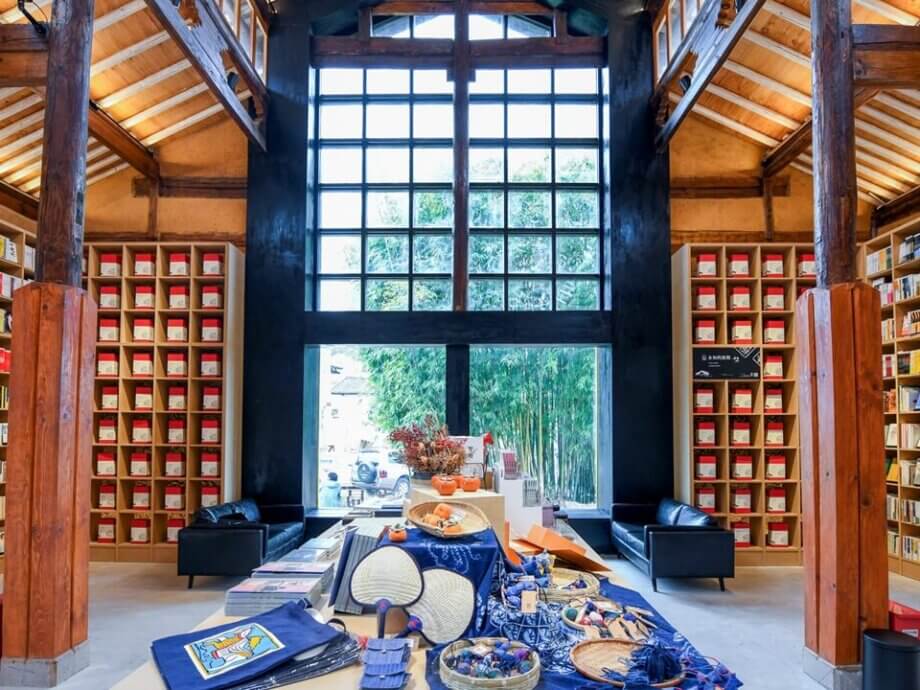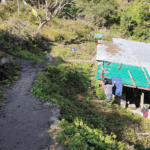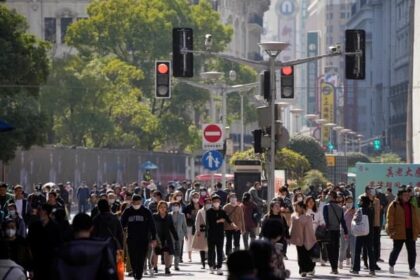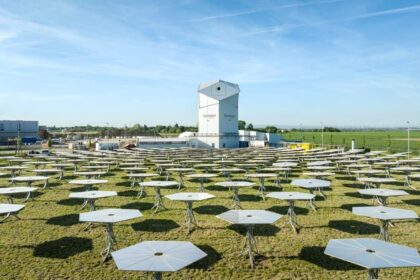The Birth of a Bookstore: Reviving Baiwu Village Through Literature
In late May, the quiet village of Baiwu in Nagu town, Huize county, Yunnan province, witnessed a transformation that went beyond bricks and mortar. The opening of the Huize Rural Bookstore, a new branch of the renowned Librairie Avant-Garde chain, marked not just the arrival of nearly 20,000 books, but the infusion of new cultural energy into a place steeped in history yet long marked by economic hardship.
- The Birth of a Bookstore: Reviving Baiwu Village Through Literature
- Why Baiwu? A Village With Deep Roots and New Aspirations
- The Librairie Avant-Garde Poetry Festival: Weaving Poetry Into Daily Life
- Architectural Innovation: Preserving the Past, Building for the Future
- Bookstores as Rural Cultural Hubs: A Broader Movement
- Economic and Social Impact: Changing Lives in Baiwu and Beyond
- Challenges and Critiques: Balancing Heritage, Tourism, and Community
- Architectural and Cultural Significance: A New Model for Rural China
- In Summary
Librairie Avant-Garde, originally founded in Nanjing in 1996, has become a symbol of literary and architectural innovation in China. Its expansion into rural areas, particularly in Yunnan, is part of a broader movement to revitalize the countryside through culture, public space, and community engagement. The Baiwu branch, the sixth in Yunnan, stands as a testament to this vision, blending historical preservation, modern design, and a deep commitment to poetry and the arts.
Why Baiwu? A Village With Deep Roots and New Aspirations
Baiwu, whose name means “white fog,” sits on the east bank of the Jinsha River, an upper stream of the Yangtze. Over 2,000 years ago, it was a vital courier station along a major military and merchant route. During the Ming and Qing dynasties, Baiwu became a hub for copper mining and transport, earning the moniker “the inaugural stop on the long supply route to the capital.” Today, the village preserves 24 historical relics, including guild halls, temples, bridges, and city walls, as well as over 2,000 traditional dwellings with gray-tiled roofs and earthen walls.
Despite its rich heritage, Baiwu faced significant poverty and was designated a national historical and cultural village in 2005. The arrival of Librairie Avant-Garde, with its focus on cultural renewal, offers a new narrative for the village—one that looks beyond its copper-casting past to embrace literature, art, and community life.
The Librairie Avant-Garde Poetry Festival: Weaving Poetry Into Daily Life
The grand opening of the bookstore was marked by the Librairie Avant-Garde Poetry Festival, a unique event that turned the entire village into an open-air poetry gallery. Chen Qinshaofu, a poet and bookstore operator from Kunming, led a team that posted more than 100 poems by both Chinese and international poets throughout Baiwu. Verses adorned doors, walls, windows, and even fields, creating a literary treasure hunt for visitors and villagers alike.
Strolling through Baiwu, one might encounter Seamus Heaney’s The Forge on Forge Street, Robert Frost’s The Wood-Pile beside a woodpile, or Jorge Luis Borges’ Un Patio in a tidy courtyard. Local works, such as Hou Ma’s Snow Falls Quietly and Dinner Is Getting Ready, and poems by ethnic minority writers, also found their place in the landscape. The festival’s aim, as Chen explained, was to create opportunities for people to “encounter poetry” in unexpected ways, sparking moments of resonance and reflection.
As Zhang Ruifeng, the rotating president of Librairie Avant-Garde, put it, “Baiwu is a poetic name. Poetry is a signature section in the bookstore, so we thought, ‘why not organize a poetry festival in the village?'”
Architectural Innovation: Preserving the Past, Building for the Future
The transformation of Baiwu’s old granary and pigpen-like house into a modern bookstore and café was led by Liu Jiakun, the 2025 Pritzker Architecture Prize laureate. Liu’s approach was guided by a respect for the village’s heritage and a belief in the “spiritual strength” of the project. The original rammed-earth walls were preserved and reinforced, while a new eco-friendly structure made of “Wooden Bamboo”—a high-performance bamboo fiber-reinforced composite—was inserted inside. This innovative material, used for the first time in architectural structure, also features in the bookshelves and seating.
The design challenge was to create a space that both blended into the village and stood out as a beacon of positive energy. The solution: spray-painting the outer walls gold, a nod to Baiwu’s copper-mining history and the Chinese saying “there is a house of gold in books,” symbolizing the wealth of knowledge. Liu explained, “It’s risky to use the color gold. Different shades of gold indicate different ethos. We did a lot of experiments and chose a brilliant, elegant one.”
Coexisting with nature is central to Liu’s philosophy. The poetry garden, resembling an amphitheater, serves as a gathering place for readings, music, and community events. Each seat is inscribed with a line from a Chinese or international poet, and the garden is designed to change with the seasons as new flowers bloom and climbing plants cover the walls. The garden also cleverly solves a practical problem: integrating public toilets into the site without compromising its aesthetic or utility.
Bookstores as Rural Cultural Hubs: A Broader Movement
The Baiwu bookstore is part of a larger trend in China, where artists, architects, and cultural entrepreneurs are moving into rural areas to create new models of community life. This movement, sometimes encouraged by government policy, is a response to decades of rural depopulation and the decline of traditional village life as young people migrate to cities.
Librairie Avant-Garde has pioneered this approach, opening branches in ancient towns and villages across China. Each location is carefully chosen for its historical and scenic value, and each project involves the adaptive reuse of existing structures—granaries, academies, silos—into vibrant cultural spaces. For example, the Shaxi branch in Dali features a “Poetry Tower” with panoramic views, while the Weishan Chongzheng Academy Bookstore in Yunnan integrates a 500-year-old academy with modern book galleries and an outdoor theater.
These bookstores are more than retail spaces; they are designed as “spiritual granaries”—places where villagers and visitors can gather, read, and participate in cultural events. The aim is to foster a sense of community, preserve local heritage, and offer new possibilities for rural life.
Economic and Social Impact: Changing Lives in Baiwu and Beyond
The arrival of Librairie Avant-Garde in Baiwu has had immediate and visible effects. According to He Jian, a local cultural tourism worker, there has been a noticeable rise in tourists coming to the village to take photos, read books, and purchase cultural products. The bookstore offers a range of creative goods, many designed specifically for Baiwu, including magnets, postcards, bags, and copper items that reflect the village’s history.
More importantly, the bookstore has become a new public space for villagers. When the shop and café close, the poetry garden remains open, serving as a square where residents gather after dinner, children play, and people read lines of poetry inscribed on the seats. Zhang Ruifeng observed, “We put our bookstores in the countryside to build a public space for villagers. Here, this goal has been achieved thanks to the ingenious design.”
At the opening ceremony, villagers and visitors from nearby cities gathered to hear live music, architectural talks, and poetry readings. Local voices were included, such as Gui Lisha, who read a poem in the local dialect. Zhang encouraged villagers to make the bookstore a part of their daily lives, expressing hope that “the bookstore, cultural events, and visitors will gradually influence villagers’ attitudes toward life, especially the children.”
Challenges and Critiques: Balancing Heritage, Tourism, and Community
The movement to revitalize rural China through cultural projects is not without its challenges. As seen in other villages, such as Bishan in Anhui province, the influx of artists, tourists, and investment can lead to gentrification, rising property prices, and tensions between preserving authenticity and catering to outside visitors. Some critics argue that these projects risk turning villages into sanitized tourist attractions, disconnected from the realities of rural life.
However, Librairie Avant-Garde’s approach emphasizes community engagement and respect for local traditions. By involving villagers in the design and operation of the bookstore, and by making public spaces accessible to all, the project aims to avoid the pitfalls of top-down development. The focus on poetry and literature, rather than commercial tourism alone, helps maintain a sense of purpose and identity rooted in the village’s unique history and culture.
Architectural and Cultural Significance: A New Model for Rural China
The Baiwu bookstore and its counterparts across China represent a new model for rural revitalization—one that combines architectural innovation, cultural programming, and community participation. The use of sustainable materials, preservation of historical structures, and integration of art and literature set these projects apart from conventional development schemes.
International recognition has followed. Librairie Avant-Garde’s original Nanjing store was named one of the world’s most beautiful bookstores by CNN, and its rural branches have been featured in global architecture and design publications. The chain’s commitment to creating “spiritual homes” for literature and community has inspired similar initiatives in other parts of China and beyond.
As Liu Jiakun noted, “Architecture can shape human behavior and create an atmosphere, providing a sense of tranquility and poetry, evoking empathy and kindness, and fostering a sense of community with shared joys and sorrows.”
In Summary
- The Librairie Avant-Garde bookstore in Baiwu village, Yunnan, is part of a broader movement to revitalize rural China through culture and architecture.
- The bookstore’s opening was marked by a poetry festival that integrated over 100 poems into the village landscape, creating a unique literary experience for residents and visitors.
- Architect Liu Jiakun led the transformation of historical buildings using innovative materials and design, preserving the village’s heritage while introducing modern elements.
- The project has boosted tourism, provided new public spaces, and fostered community engagement, offering villagers new opportunities and a renewed sense of identity.
- Librairie Avant-Garde’s rural branches serve as models for sustainable, culturally sensitive development, balancing economic benefits with respect for local traditions.
- Challenges remain, including the risk of gentrification and the need to ensure genuine community participation, but the Baiwu project demonstrates the potential for literature and architecture to breathe new life into China’s countryside.












